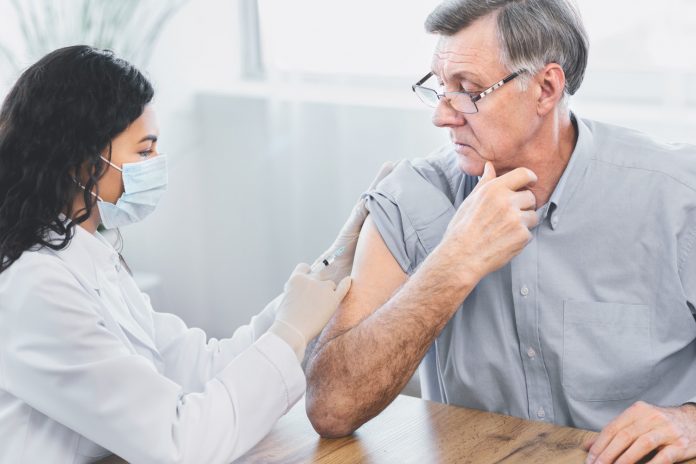The Federal Government has expanded the eligibility for the Pfizer and Moderna Covid-19 vaccines to all people aged 60-plus.
This expansion has been welcomed by the Royal College of General Practitioners (RACGP), which says that this is another positive step forward in the vaccine rollout.
“It is vital that people aged 60 and over are vaccinated right away,” says RACGP President Dr Karen Price.
“Although people in this age group have been eligible to receive the AstraZeneca vaccine for many months, it is an unfortunate reality that some have not done so.
“AstraZeneca is a safe and effective vaccine and the risk of a person aged 60 and over suffering serious side effects is extremely rare. However, many patients have opted not to receive this vaccine.
“There is a lot of misinformation circulating on social media that has spread like wildfire in the community. Sadly, the AstraZeneca vaccine has come to be regarded by some as an inferior vaccine when that simply isn’t the case.
“So, opening up eligibility for the Pfizer and Moderna vaccines make sense. It will help us get people aged 60-plus over the line who have been holding out.”
Dr Price says that people aged 60 and over should get vaccinated as a matter of urgency.
“Just today, Victoria recorded 1438 new Covid-19 cases and five deaths and there is community transmission in New South Wales, Queensland and the ACT.
“With the phased lifting of restrictions, we will see an even greater increase in case numbers across Australia.
“Unvaccinated people will be most at risk of contracting the virus and suffering severe effects, including hospitalisation or worse.
“If you have been hesitating on whether to receive a Covid-19 vaccine, my message to you is a simple one – it’s not too late and it could save your life.
“Getting vaccinated will also help protect the broader community, including vulnerable populations such as the immunocompromised.
“The Pfizer, Moderna and AstraZeneca vaccines are all extremely effective and safe. So please, do the right thing and roll up your sleeve – it could be the best health decision you ever make.
“There are heartbreaking reports, particularly from overseas, of patients with Covid-19 in hospital beds gasping for air and begging for a vaccine only to be told it is too late. So please spread the word to your friends and family to get vaccinated right now.”
The RACGP President also made a plea for patients to be respectful of general practice staff.
“Please remember, it may take time for some practices to adjust to these changes that come into effect tomorrow,” she says.
“Practices are already busy vaccinating the community and may not have bookings immediately available.
“New bookings will depend on each practice’s capacity, available vaccine stock and whether they have already vaccinated priority groups.
“So, if you are aged 60 or over and turn up to your local practice demanding a Pfizer vaccine, they may not necessarily be able to help you straight away.
“If so, please don’t take your frustrations out on receptionists doing their job, they don’t make the rules and have been through enough already.
“Keep in mind that children and adolescents aged 12 to 17 can only receive the Pfizer or Moderna vaccine.
“For pregnant women, the AstraZeneca vaccine should only be considered if the benefits to the patient outweigh the individual potential risks and there are no Pfizer or Moderna supplies available.
“Note too that they and their baby are at heightened risk of suffering from severe effects from Covid-19 so getting them vaccinated must be a priority.
“Vaccination is the best way to help stop yourself or a loved one ending up in hospital with serious COVID-19 effects.
“As we continue to relax restrictions, vaccination will be your shield and your community’s shield against this virus.
“The bottom line is that we now have a nationally consistent approach, with everyone aged 12 and over having access to three safe and effective vaccines.
“On behalf of the RACGP and the wonderful hard working GP community we welcome this news, which will help to keep our communities safe,” says Dr Price.











